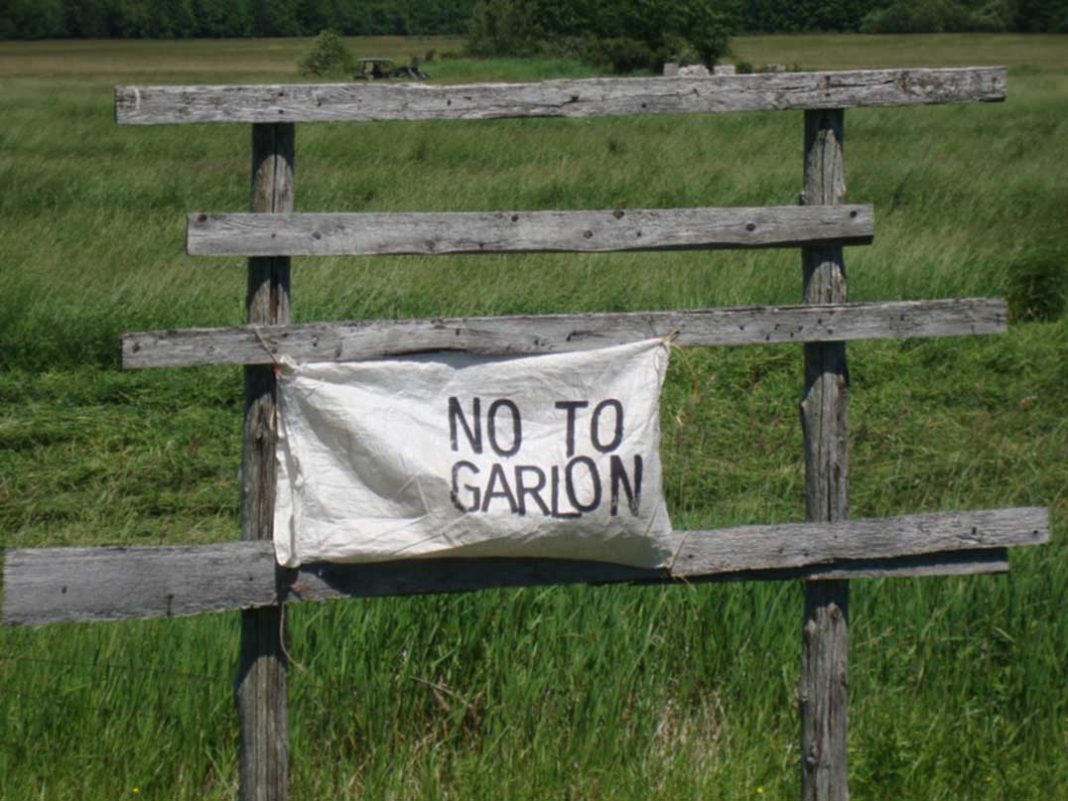Individual landowners can request ‘no spray’ adjacent to their property
MANITOULIN—Residents of the Howland part of the Northeast Town, Billings and M’Chigeeng should be aware that Hydro One is in the planning stages for its regular vegetation maintenance that includes the use of the herbicide Garlon RTU. The timing of the work will depend on crew availability and is expected to occur in the next few months. The timing is also coordinated with the MTO.
“Hydro One must ensure that its distribution lines and equipment are clear of trees and brush that could pose a safety risk to the public or employees or interfere with the reliability of the system,” says Nancy Clark, communications officer for Hydro One. “Tree contacts account for more than 30 percent of power outages in Ontario. This percentage can be higher in areas that are heavily forested. Hydro One’s focus for maintaining vegetation near power lines is to reduce tree-related power outages and ensure safe access for our crews.”
Hydro One technicians can use a variety of tools to manage vegetation near power lines to improve the reliability of the power supply, Ms. Clark added. These tools include trimming or removing vegetation through mechanical or manual means and the selective application of herbicide (Garlon RTU), if approved by the property owner. Hydro One requires permission of the landowner to apply herbicide, including the municipality or township,” she noted.
On the safety data sheet provided for Garlon RTU by its maker, Dow Chemical, it is noted that the compound is “highly toxic to aquatic organism on an acute basis.” Despite this (and the accompanying map that shows many water sources near which the spraying could be conducted), the Northeast Town and Billings councils all approved its use in their respective municipalities, as did the M’Chigeeng First Nation chief and council.
Only two councillors in the Northeast Town, councillors Laurie Cook and Michael Erskine, objected to the use of Garlon RTU.
“I won’t be supporting this, given how close it is to the water,” Councillor Cook told her fellow members of council.
Northeast Town Councillor Bruce Wood countered her comment by likening Garlon RTU to shampoo, perfume or dish soap, noting that in his opinion, these items were just as dangerous to one’s health.
“While suggestions by my fellow councillors that drinking soda pop and using dish soap are also not good for people, their use of these products is voluntary and the disposal of such does enter a treatment process,” Councillor Erskine told The Expositor following the meeting. “Not so much with the spraying of questionable chemicals such as herbicides on public property. I could not in good conscience vote in favour of allowing spraying.”
Ms. Clark explained that when selectively applying herbicide, a technician ensures the herbicide does not enter the waterways by analyzing the terrain. The buffer zone varies depending on the soil condition, denseness of vegetation, slope, etc.
“We follow public notification guidelines set out by the Ministry of the Environment which includes newspaper notification and the use of signs in public areas and access points,” she continued. “Hydro One requires permission of the landowner to apply herbicide and will contact all affected landowners to ask permission.”
In past debates over the spraying of Garlon, Assiginack and Tehkummah Townships completely opted out of the use of the product by Hydro One in their jurisdictions.
If rural citizens of the Northeast Town, Billings Township or M’Chigeeng First Nation do not want Garlon RTU sprayed adjacent to their properties, they should contact Hydro One at 1-888-664-9376.





